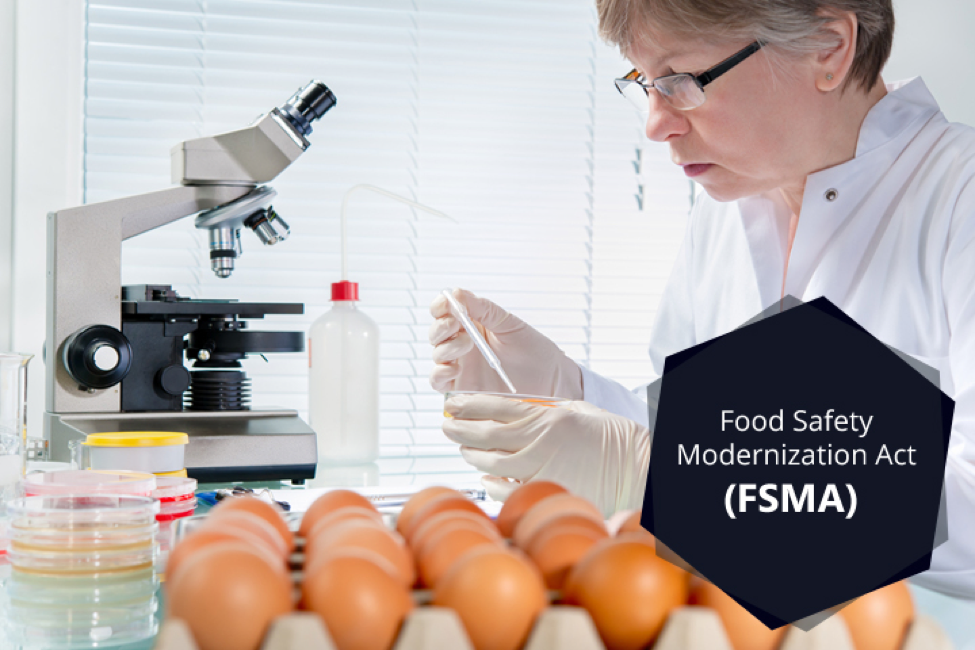On May 26, the FDA released the final of seven rules that comprise the FDA Food Safety Modernization Act (FSMA). The final rule relates to intentional food adulteration and is intended to protect the public and hold offending companies responsible for their actions.

Here’s what you need to know about it:
Purpose of the FSMA Rule on Adulteration
The final rule has two purposes. Primarily, it’s designed to protect the general public’s health as well as instill confidence in the food products ordered at restaurants and purchased on supermarket shelves.
In an age when many Americans regularly see news stories about outbreaks of food-borne illnesses, the FDA has sought to renew confidence in the food services and delivery industry.
Secondly, the rule was implemented to direct larger companies — both foreign and domestic — to establish better food defense plans. Though many have such plans in place already, the rule places more pressure on the rest.
“A written plan must identify vulnerabilities and actionable process steps, mitigation strategies and procedures for food defense monitoring, corrective actions and verification,” says Dave Fusaro, editor in chief of FoodProcessing.com. “A reanalysis is required every three years or when certain criteria are met, including mitigation strategies that are determined to be improperly implemented.”
Origins of the FSMA Rule on Adulteration
The seventh FSMA rule has been in the works for a while. According to a release by the FDA, “This final rule is the product of an unprecedented level of outreach by the FDA to industry, consumer groups, the agency’s federal, state, local and tribal regulatory counterparts, academia and other stakeholders. This outreach began before the rule was proposed in January 2013.”
In other words, this rule is not intended to be taken lightly. It’s the result of years of work and will be treated as possessing due weight.
Oversight and Management of Preventive Controls
One of the biggest facets of the new rule involves oversight and management of preventive controls. The new FSMA rule allows for flexibility in the steps that can be taken, but there are guidelines.
Organizations are required to invest in careful monitoring, take corrective action to identify small, isolated problems that occur during food production in a timely fashion, and implement verification activities to ensure preventive controls are consistently applied.
Old Provisions are Now Binding
Some of the old provisions for Current Good Manufacturing Practices (CGMPs) have been updated and clarified. Specifically, the old non-binding provisions, such as training and education, are now being treated as binding.
Management is tasked with ensuring all employees who process, manufacture, pack, or otherwise come into contact with food are qualified to perform their duties. Such employees must have an appropriate combination of training, education, and experience in order to fulfill their duties.
Furthermore, all employees are required to receive food hygiene and food safety training.
Compliance Dates are Staggered
Depending on the size of your business and the type of firm you operate, compliance dates are staggered over the first several years after publication of this final rule. You can read more about the dates by checking out this resource from the FDA.
New FSMA Rule Signals Positive Changes
“Intentional adulteration in the food supply chain, regardless of the motivation, can have a tremendous impact on the industry and consumers alike,” food safety expert Patrick Kennedy says. “Both foreign and domestic food facilities must be keenly aware of all potential adulteration threats and successfully mitigate such issues in order to maintain consumer confidence.”
Although the new FSMA rule probably won’t completely remove the risk of intentional food adulteration, it should reduce the likelihood and frequency of such problems. If you own or work for an organization in the food industry, it’s essential for you to understand the new requirements and observe them accordingly.
Ready for a specialized food ERP? Learn more about Aptean Food & Beverage ERP JustFood Edition — a solution purpose-built to solve your challenges and propel your food business and digital transformation to the next level.